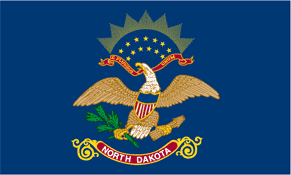North Dakota State Standards for Social Studies: Grade 10

Currently Perma-Bound only has suggested titles for grades K-8 in the Science and Social Studies areas. We are working on expanding this.
ND.12.1. Nature and Scope of History: Students understand the nature and scope of history.
12.1.1. Understand the role of chronological thinking in describing and investigating historical events and time periods.
12.1.2. Understand the principles governing historical analysis and interpretation.
12.1.3. Understand the development and influence of world civilizations.
12.1.4. Understand how key events, people, and ideas affected United States history.
12.1.5. Understand how key events, people, and ideas affected world history.
ND.12.2. Political Institutions: Students understand how political institutions develop and function.
12.2.1. Understand the structures and purposes of governments.
12.2.2. Understand the foundations, operations, and structures of the American political system.
12.2.3. Understand the role of American political institutions in international affairs.
ND.12.3. Economic Systems: Students understand different types of economic systems.
12.3.1. Understand the principles and problems of traditional, command, market, and mixed economies.
12.3.2. Understand how major economic forces and institutions influence individual decisions of producers, consumers and investors.
12.3.3. Understand how interdependence affects the global marketplace.
ND.12.4. Social Studies Resources: Students use social studies resources for a variety of purposes.
12.4.1. Use primary sources to analyze, interpret, evaluate, or synthesize information related to social studies.
12.4.2. Interpret and evaluate the credibility of primary and secondary sources.
12.4.3. Use technology to access, record, and analyze information related to social studies.
ND.12.5. The Role of the Citizen: Students understand the role of the citizen in society.
12.5.1. Understand the benefits and challenges of the rights of citizenship.
12.5.2. Understand the responsibilities of citizenship and the components of civic participation.
ND.12.6. Geography: Students understand geographic elements as applied to social studies.
12.6.1. Understand the relationship between geographic elements and concepts in history, government, and economics.
12.6.2. Understand the interactions of geography and the physical and human environment.
12.6.3. Know the characteristics and uses of geographic tools and use these tools to organize and communicate information.
ND.12.7. Culture: Students understand the importance of culture.
12.7.1. Understand how variations in the elements of culture lead to diversity among cultures.
12.7.2. Understand the role of the humanities, religion, and beliefs in defining and preserving culture.
ND.12.8. Sociology and Psychology: Students understand the basic concepts of sociology and psychology.
12.8.1. Know the process of personality growth and development.
12.8.2. Understand the principles governing human behavior within social structures.
12.8.3. Understand how experimental methods are applied to the study of the basic concepts of sociology and psychology.
ND.12.9. Sovereignty: Students understand the concept of sovereignty and its relation to the tribal nations of North Dakota.
12.9.1. Understand the role of constitutional provisions, Supreme Court cases and laws in forming the basis of the federal-Indian relationship.
12.9.2. Understand the historical role of treaty making in the relationship between the United States government and the Indian nations.
12.9.3. Understand the significance of major issues, events, and conflicts in tribal history.
12.9.4. Understand how political and economic forces have affected the sovereignty of tribal nations in North Dakota.
12.9.5. Understand tribal concerns within the tribal community and outside the reservation.